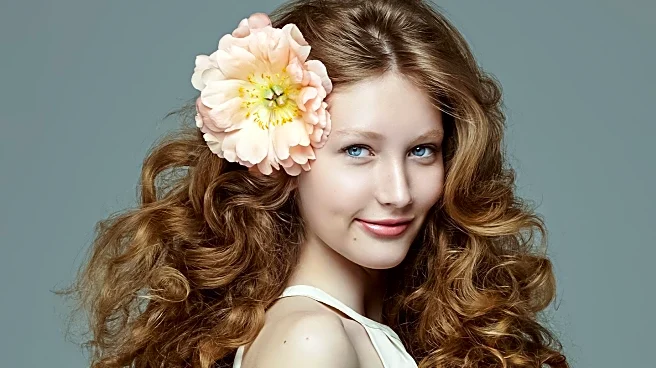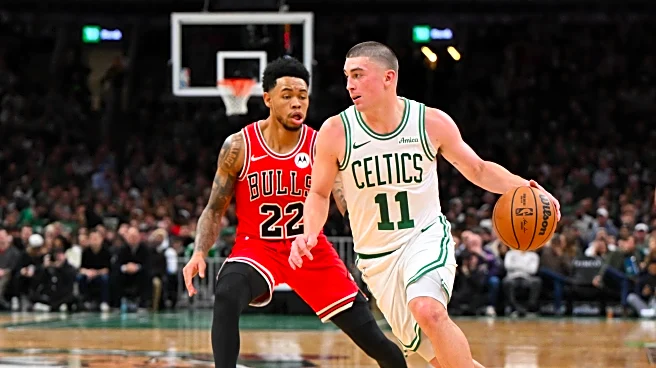What's Happening?
Recent discussions have highlighted the potential role of glutathione, a powerful antioxidant, in preventing premature graying of hair. According to Leslie Kenny, founder of Oxford Health Span, stress
can lead to the production of adrenaline, which, if not managed, converts into hydrogen peroxide. This compound can bleach hair from the inside out if not neutralized by sufficient levels of glutathione. The body naturally produces glutathione, but its levels can decline due to factors like poor nutrition, stress, and aging. Experts suggest that a diet rich in glutathione, including foods like leafy greens, avocados, and broccoli, may help maintain hair color by combating oxidative stress.
Why It's Important?
The potential of glutathione to prevent premature graying is significant as it offers a natural approach to managing hair health, which could appeal to those seeking alternatives to chemical hair dyes. This development is particularly relevant for individuals experiencing early graying due to oxidative stress and environmental factors. By focusing on antioxidant intake, people may not only address hair pigmentation issues but also improve overall health. However, experts caution that while increasing glutathione intake might support hair health, it is unlikely to reverse existing gray hair, emphasizing the importance of a holistic approach to health and wellness.
What's Next?
Further research is needed to establish the efficacy of glutathione supplementation in preventing or reversing gray hair. While some experts recommend dietary sources of glutathione, others suggest liposomal supplements for better absorption. The debate continues as to whether these methods can effectively prevent graying, with some experts calling for more robust clinical data. Meanwhile, individuals interested in this approach are advised to focus on a balanced diet, manage stress, and avoid lifestyle factors that contribute to oxidative stress.
Beyond the Headlines
The discussion around glutathione and hair health also touches on broader themes of aging and wellness. As people seek to maintain youthful appearances, the interest in natural and dietary solutions is growing. This trend reflects a shift towards preventive health measures and a greater awareness of the impact of lifestyle choices on aging. The conversation also highlights the complexity of hair pigmentation and the need for a comprehensive understanding of the biological processes involved.










